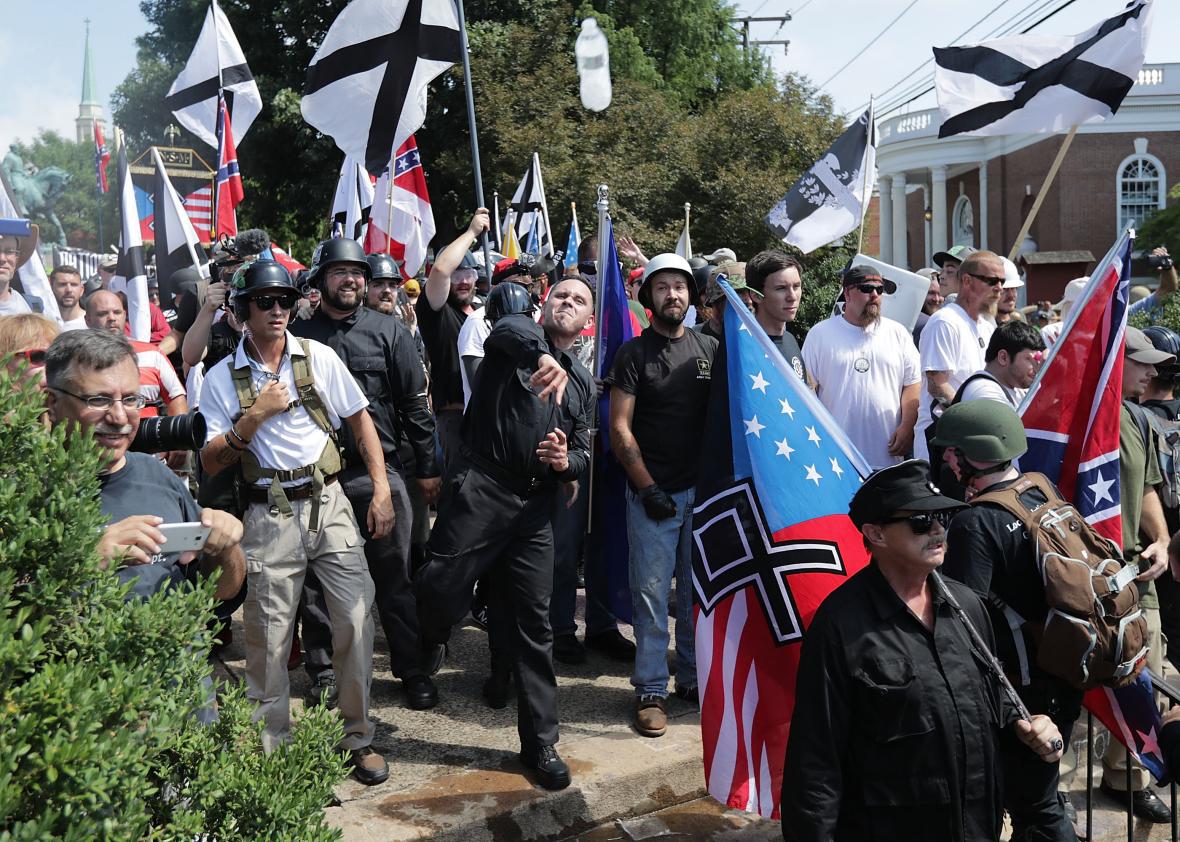Less than a day after Twitter came under fire for bestowing a coveted blue checkmark on white nationalist Jason Kessler, it has decided to appease angry users by suspending its verification program all together. Kessler considers himself a “white civil rights” leader, has claimed that government is pursuing “displacement-level policies which are removing the indigenous people from the country”—by which he means white people—and most famously, organized the alt-right rally in Charlottesville this summer that turned deadly. (After the rally, he tweeted that Heather Heyer, who died in Charlottesville, was “a fat, disgusting Communist.”)
Like the kindergarten teacher who punishes the whole class because one bully said something mean, Twitter is putting everyone else waiting to get verified in timeout, too. It’s good that the company is taking a breath to reassess what the verification status means, and whether boosting the profile of a person who organized a deadly rally, which the Daily Stormer billed as an effort “to end Jewish influence in America” should receive it. At the time of publication, Kessler, whose profile is adorned with a massive Confederate battle flag, is still verified.
He celebrated the initial news with a tweet:
Of course, Kessler isn’t the only questionable figure Twitter has graced with the status symbol. Richard Spencer, who argued in an interview with a British journalist this week that the trans-Atlantic slave trade was good for Africans, is verified. So is Ann Coulter, as well as Mike Cernovich, the alt-right media personality who helped promote the “Pizzagate” conspiracy theory and used his verified Twitter platform last year to proclaim in a since-deleted tweet:
Today we have a moment of silence for Trayvon Martin’s rape victims.
Kidding!
He got got before he was able to rape anyone.
— Mike Cernovich (@Cernovich) Feb. 5, 2016
But the checkmark isn’t just a symbol. Being verified is a sort of like being in an elite club that guarantees your words are more likely to be read and that your videos are more likely to be seen. (I’m not verified, but I recently applied to be.) When accounts are verified, they float to the top of the platform’s search results for “top tweets.” They also appear more likely to show up in Google search’s Twitter bar, which populates at the top of search results for important news events. When verified Twitter users engage with other users on the platform, their engagement is more likely to send a notification, and verified users have the option to only get notifications from other verified users.
Twitter’s decision to verify people who coordinate racist campaigns, like Kessler, is a political one. It is, in effect, saying that his presence is important to boost and protect, even if he uses his Twitter account to promote counterfactual, dangerous narratives. Kessler’s YouTube channel is loaded with videos where Kessler refers to the strength of patriarchal societies and rejects what he describes as an “anti-White movement.” He also says that when alt-right people call one another Nazis it’s like when “black people were called the n-word for so long they just started calling each other that as a term of endearment.”
Twitter CEO Jack Dorsey tweeted on Thursday that the company “realized some time ago the system is broken and needs to be reconsidered. And we failed by not doing anything about it. Working now to fix faster.” And Twitter’s own support team pointed out that his verification has been misunderstood. “Verification was meant to authenticate identity & voice but it is interpreted as an endorsement or an indicator of importance,” the company tweeted.
But the truth is that giving someone a blue checkmark is by definition an indicator of importance. In order to get one, users are asked to describe “their impact in their field” and to provide URLs “that help express the account holder’s newsworthiness or relevancy in their field.” In other words, if you’re not newsworthy by Twitter’s standards, you may be denied verification.
Twitter’s verification of Kessler comes as the company works to strengthen its protections against hate speech. In October, Twitter went into detail about how it is working to weed out violent groups, hate speech, and nonconsensual explicit photos of women that are shared on the platform. Many of those changes are going into effect this month. If the company is serious about its new policies to demote hate speech, verifying a popular white nationalist and anti-Semite is probably a step in the wrong direction.
In the meantime, those who are actually trying to get verified—journalists like me who need to assure sources that they are not being duped—will have to wait even longer while Twitter cleans up yet another mess.
